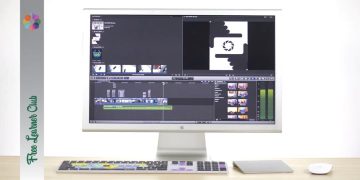Discover the secrets to writing a professional profile that will capture the attention of recruiters and get you closer to your dream job. Don’t miss out!
A striking professional profile on your CV can be the key to capturing the attention of recruiters in a matter of seconds. This section, located at the beginning of your CV, is your cover letter, summarized in a few lines, with which you should highlight the best of you as a professional.
A well-crafted profile not only reflects your skills and experience but also clearly communicates who you are and what you can contribute to the company. Writing it correctly is essential for your CV to stand out from the competition and bring you closer to the opportunity you are looking for.
Below, you will find practical tips that will help you create a professional profile that leaves an impression.
Key Points
- Tailor your profile to each job offer by highlighting the most relevant skills and achievements that match the job description.
- Use action verbs and concrete data to highlight your accomplishments, showing your real impact in previous jobs.
- Keep your professional profile short but meaningful, between 3 and 5 lines, focusing on what is most important to capture the recruiter’s attention.
- Avoid generic or empty phrases and instead use specific examples that demonstrate your qualities and skills.
- Review your profile for grammar and style, and ask for feedback to ensure it is flawless and projects a professional image.
What is a professional profile?
A professional profile is a brief summary at the beginning of your CV that summarises your key skills, relevant experience, and career goals. It is a concise statement of who you are as a professional and what you can bring to the company, designed to immediately catch the recruiter’s attention.
Since it is the first thing they will see about you, it is essential that this section reflects the best you can offer in just a few lines.
This section of your resume acts as a cover letter to the company: if you fail to convey a clear and attractive message in a matter of seconds, you could lose the opportunity before you even move forward. The key is to highlight what makes you unique and valuable for the position you are applying for, avoiding generic or repetitive descriptions.
Importance of the profile in the CV
The professional profile is crucial because it represents the first contact the recruiter has with your resume. This first impression can make the difference between being considered for the position and being discarded in a matter of seconds. In this initial section, not only are your skills and experience summarized, but it also strategically communicates why you are a valuable candidate for the company.
A well-crafted profile has the power to immediately capture the reader’s attention, serving as the start of a compelling narrative. If you manage to pique the recruiter’s interest from the start, you’ll be much closer to moving forward in the selection process.
How to create an effective profile
Developing an impactful professional profile is not just about describing your skills, but strategically aligning them with the needs of the company. Each word should highlight your competencies and make them relevant to the position you are applying for. Below, we offer practical steps to achieve this effectively.
Choose the right tone.
The tone of your profile should match the company’s culture and style. Being overly formal can make you seem aloof, while a tone that is too casual can detract from your profile’s seriousness. Adjusting your communication is essential to making a good first impression.
Do some research on the company to understand its culture and communication style. This way, you can decide whether it’s better to adopt a more serious and corporate tone or a relaxed and creative one. An effective profile is consistent with the environment you’re targeting.
Highlight your achievements
Your accomplishments are what will make your profile stand out. Instead of just describing your duties, highlight how your actions have led to tangible results in your previous jobs. Recruiters value results, not just responsibilities.
Use action verbs that show proactivity and leadership, such as “increased,” “optimized,” “managed,” or “led.” If you led a team or achieved important goals, be sure to include that. Those details are what show the value you can bring.
Use specific data
Numbers are a great tool to demonstrate the impact of your achievements. Including concrete metrics like “I increased efficiency by 20%” or “I reduced operating costs by 12%” gives your profile weight and makes it more trustworthy.
Not only does this data grab attention, it allows the recruiter to visualize how you could produce similar results in the new position. Make sure the numbers relate directly to the responsibilities of the position you are applying for to make them even more relevant.
Avoid empty phrases
Avoid generic phrases like “I am a proactive worker” or “I have excellent communication skills” as they do not provide enough value. Instead, use concrete examples that demonstrate your capabilities.
For example, instead of saying “I am a good leader,” you could say “I led a team of 8 people to complete a complex project before the deadline, improving team productivity by 15%.” These types of statements show not only what you can do, but how you do it.
Creating an effective profile involves being clear, and direct and providing valuable information that supports your skills, rather than resorting to empty phrases or clichés.
Errors when writing the profile
Writing a professional profile incorrectly can reduce the impact of your resume or, in the worst case, cause it to be discarded immediately. Avoiding certain mistakes will help you catch the recruiter’s attention and project a strong and trustworthy image. Below, we show you some of the most common mistakes and how to effectively avoid them.
Unnecessary exaggerations
Sometimes, in an effort to impress, some candidates tend to exaggerate their skills or achievements. While this may seem like a good strategy, it can backfire if the recruiter spots any inconsistencies. HR professionals are often trained to spot exaggerations or unbelievable claims. Saying, for example, that “you led an international project six months into your first job” could raise questions if the rest of your experience doesn’t back it up.
It is preferable to keep descriptions honest and aligned with your real experience. A sincere profile reflects integrity, and, even if the achievements are not extraordinary, they will always have more value than an exaggeration that can be questioned.
Redundant information
Including information that already appears in other sections of your resume is an inefficient use of valuable space. Your professional profile should offer a unique and compelling summary of your best qualities, not be a rehash of work or academic experience. If you simply repeat what you’ve already mentioned elsewhere, you risk boring the recruiter and diluting the impact of your application.
To avoid this mistake, make sure that each section of your resume offers something different. The profile should focus on your value proposition as a professional, while the other sections detail your roles and responsibilities. This way, each part will complement the others without duplicating information.
Lack of personalization
A common mistake is writing a generic profile that is suitable for all job opportunities. Not only does this project disinterest in the specific offer, but it also makes you miss the opportunity to highlight your most relevant skills for the position you are seeking.
Customizing your profile according to the company or industry you are applying to is crucial to make recruiters perceive that you understand what they need.
Instead of using a one-size-fits-all profile, tailor your message to each job posting. Identify key skills and achievements mentioned in the job description and prioritize them in your profile. Make sure it reflects how you can add value to that particular company.
Professional profile examples
Having a well-structured professional profile can be key to attracting the recruiter’s attention and standing out among other candidates. Below, we share 7 examples of professional profiles adapted to different sectors and experience levels. Use them as a guide to create a profile that highlights your skills and fits the needs of your industry.
Profile for marketing
Digital marketing specialist with over 5 years of experience leading SEO, SEM, and social media campaigns. I increased organic traffic by 40% and improved the conversion rate by 15%. My focus is on results-oriented strategies and optimizing the user experience.
Profile for engineering
Civil engineer with 8 years of experience in the management and execution of infrastructure projects. I have coordinated multidisciplinary teams and managed construction contracts valued at more than $12 million. My specialty is implementing innovative and sustainable solutions, optimizing resources, and meeting deadlines.
Sales profile
Sales executive with 4 years of experience in B2B consultative sales in the technology sector. I achieved a 30% increase in annual sales through the identification of new business opportunities and the strengthening of relationships with key clients. I am proactive, results-oriented, and capable of generating tailored solutions.
Profile for human resources
Human resources professional with 6 years of experience in selection processes, organizational development, and talent management. I implemented a new recruitment system that reduced hiring times by 20%. I specialize in creating effective teams and strengthening organizational culture.
Profile for technology
Software developer with over 5 years of experience in the design and development of web and mobile applications. Expert in programming languages such as JavaScript and Python, with a proven track record in creating efficient and scalable solutions. I am focused on continuous improvement and system optimization.
Profile for finance
Financial analyst with 7 years of experience in risk assessment, investment portfolio management, and financial planning. I have developed detailed financial reports that helped reduce operating costs by 12%. I focus on maximizing financial performance through data-driven strategic solutions.
Profile without experience
I am a graduate of Industrial Engineering with knowledge in quality control, process improvement, and data analysis. During my internship, I participated in optimization projects that managed to reduce production times by 15%. I am looking for opportunities to apply my skills in a dynamic and challenging environment.
These examples illustrate how a profile can be clear and concise, but also impactful. It is essential to highlight your achievements with specific data and tailor the profile to the position you wish to obtain.
Profile customization
Personalizing your professional profile is essential to differentiate yourself and capture the recruiter’s interest. Adjusting every detail of your profile will help you align it with the company’s expectations and the specific position you want to apply for. It’s not just about changing a few words, but about reflecting on how your skills and achievements fit the needs of the organization.
Adapt to the offer
Each position has specific requirements, and your profile should demonstrate that you understand these particularities. When analyzing the job description, identify the most relevant skills and competencies and make sure your professional profile clearly highlights them.
- Highlight skills: If the company values leadership or project management experience, be sure to include an accomplishment that demonstrates these skills. For example: “I led a cross-functional team that improved operational efficiency by 25%.”
- Emphasize quantifiable achievements: Recruiters are drawn to profiles that include tangible results. If you managed to increase sales, reduce costs, or improve processes, be sure to mention it with specific numbers.
This personalized approach will make your profile more attractive to the recruiter, positioning you as the ideal candidate for the position.
Investigate the company
By spending time researching the company, you’ll not only learn about its culture, but you’ll also be able to fine-tune your profile to align with its goals and values. Does the company focus on innovation? Does it have a leaning toward sustainability? Including references to these aspects within your profile can make a big difference.
- Connect with their mission: If the company promotes social responsibility, you could highlight how your achievements have also had a positive impact: “During the implementation of my last project, I reduced waste by 30% through sustainable solutions.”
- Demonstrate knowledge of their recent projects: If the company is launching a new product or expanding into other markets, highlight how your experience could contribute to those goals.
Tailoring your profile in this way not only shows your interest in the company but also positions you as someone who would be a great fit for their team.
Length of professional profile
The length of your professional profile can make the difference between capturing the recruiter’s attention or losing it in a sea of words. A good profile is brief but impactful: it should communicate the essentials without overloading it with unnecessary information.
Precise and powerful
Your profile should not be a long narrative. Ideally, it should consist of 3 to 5 lines that strategically summarize the highlights of your career. This space is not to detail your entire career but to offer a summary that intrigues the reader and motivates them to delve deeper into your experience. Clearly define your main skills and do so in a concise manner.
Every word counts; a well-written profile should make an immediate impression.
Suggested extension
It is recommended that your professional profile be between 50 and 100 words long. This range will allow you to be clear enough to communicate your value, without losing the recruiter’s attention. A text that is too long can be overwhelming; on the other hand, a profile that is too short may not convey the desired seriousness or experience.
The key is to find a balance: offering just the right amount of information to stand out without overwhelming the reader.
Final adjustments
Before finishing your CV, make sure that your professional profile is optimized to the maximum. This step is essential to perfect the details that can be decisive when it comes to capturing a recruiter’s attention.
Ask for feedback
Getting feedback from an outsider is crucial to improving your professional profile. Ask a trusted colleague or mentor to review it. Their perspective will help you identify areas where you could be clearer or more persuasive. Often, what seems obvious to us may not be obvious to others. Use this feedback to your advantage, as it will allow you to adjust your tone or add elements that you may have overlooked.
Take care of grammar and style.
A professional profile that is impeccable in both grammar and style projects seriousness and attention to detail. Even small mistakes can create a negative impression. Take the time to carefully review each word, making sure the text flows naturally and is free of spelling or grammatical errors. If necessary, use proofreading tools or request a final review by someone else.
Remember: just as a diamond needs to be polished to shine, your professional profile also requires care to make a lasting impression.
Conclusion
Your professional profile can be the ticket that opens the doors to job opportunities, and a good profile has the power to make an impact in just a few seconds. You’ve learned that with clear language, specific achievements, and an appropriate tone, you can differentiate yourself while avoiding common mistakes such as exaggeration or redundancy. Customizing your profile for each offer, using specific data, and adapting your tone, is a smart way to stand out in a competitive job market.
A recruiter once told me that what he values most in a profile is authenticity and clarity. Do you dare to review your profile and give it that personal touch that makes it stand out? The key is to be brief, but powerful, and to project your best version in an honest and professional manner.
How far do you think your career can go with a well-crafted professional profile? Remember, your CV is your cover letter; make every word count.
Frequently Asked Questions
Q: What should I do if I don’t have many achievements to highlight in my professional profile?
If you feel like you don’t have many accomplishments to highlight on your professional profile, focus on your key skills, personal strengths, and any relevant experience you may have had, even in non-professional roles or on academic projects.
According to research, 85% of recruiters value both hard and soft skills, so you can highlight competencies such as problem-solving, adaptability, or the ability to work in a team. These attributes can be just as valuable to a recruiter as more quantifiable achievements.
Additionally, if you have participated in internships, volunteered, or even worked on personal projects, these can be strengths in your profile. You don’t need to have led a multi-million dollar project to stand out; the important thing is to demonstrate your ability to learn and grow in a professional environment.
Q: Is it appropriate to use a general professional profile for all job offers?
Using a generic professional profile for all job offers is like trying to fit a square key into a round lock. It’s not the best strategy. Recruiters are looking for candidates who specifically align with their company’s needs, and a profile that doesn’t fit the offer can make your CV go unnoticed.
Customizing your profile for each position will allow you to highlight relevant skills and achievements, showing that you understand what the company needs and that you are willing to add value from the first moment.
Furthermore, adapting your professional profile does not have to be a titanic task. You can have a solid foundation and adjust it according to the keywords of the offer or the specific requirements of the company. This will make your CV more attractive and give you more chances of advancing in the selection process.
Q: How much time should you spend writing your CV profile?
The amount of time you should spend writing your CV profile can vary, but remember that “skill is better than strength.” It’s not about writing in a rush, but rather investing the time necessary to make it impactful and relevant. This is one of the most important elements of your CV, as it’s the first thing a recruiter will see.
A good profile can get you into an interview, so it’s worth spending a couple of hours if necessary. Don’t forget to adjust the content to the job offer, as personalizing it can make all the difference.
Writing carefully and accurately is key. Make several revisions, ask for feedback, and make sure that what you’ve written truly reflects the best of you as a professional. Quality will always outweigh the amount of time invested.
Q: Should I update my professional profile with every new job?
It is always advisable to update your professional profile with each new job. Why? Because each work experience brings new achievements, skills, and learnings that make you a more competitive candidate. If you keep a static profile, you will be missing the opportunity to show how you have evolved and what you can contribute in your next position.
Plus, an updated profile will help you better connect with the job offers that really interest you. Every time you take on a new role, you develop specific skills or achieve goals that may be valuable to future employers, and reflecting that in your CV is key to keeping it relevant and attractive.
Q: Can I include soft skills in my professional profile?
Yes, you can include soft skills in your professional profile, but make sure you do so strategically. Soft skills, such as effective communication, teamwork, or leadership, are highly valued by recruiters as they complement your technical skills. However, rather than just mentioning them, it is more effective to demonstrate them with concrete examples of how you have used them in past situations to achieve results.
For example, instead of simply writing “leadership skills,” you could mention something like “Led a team of 5 people to complete a key project, improving efficiency by 20%.” This way, you provide tangible value and make your profile more impactful.



















